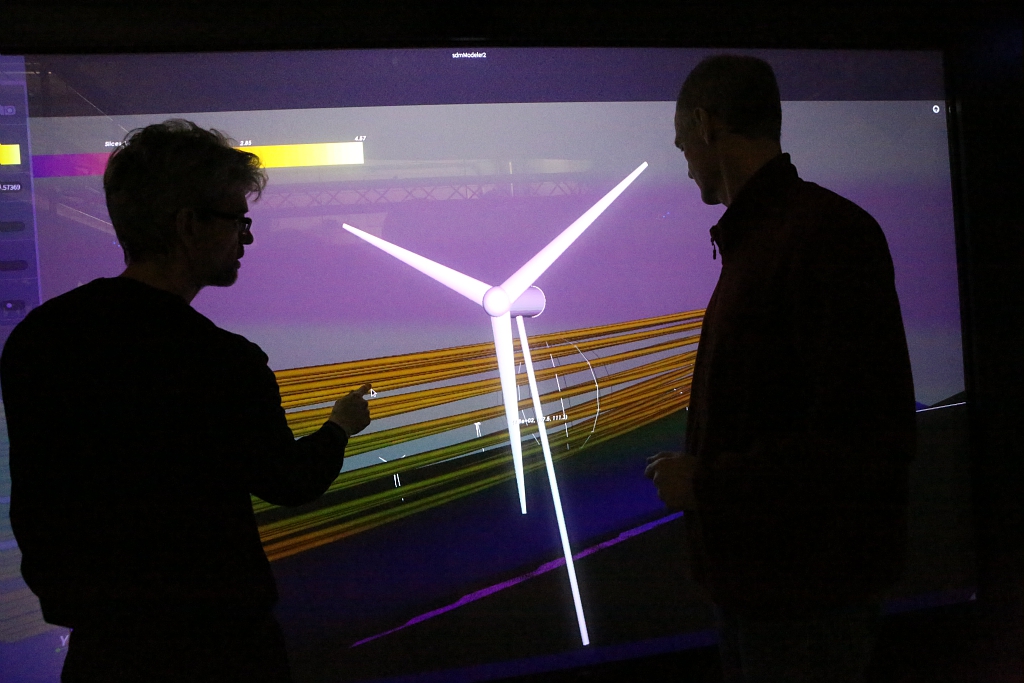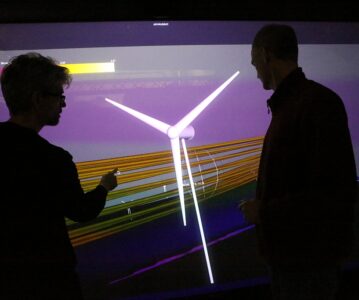2022 summer school on numerical analysis
Certification of errors in numerical simulations
Preservation of invariants by post-processing and adaptivity (mesh, scheme, solvers, model) for industrial needs
Contents
Certification of errors in numerical simulations
Numerical simulation of partial differential equations has become an essential tool for finding approximate solutions to physical problems. It leads to several important questions:
- What is the error in the numerical approximation?
- Can we certify the result, give a safety margin?
- Can we estimate the error in quantities of interest identified by the user (point value of the solution, flow through a part of the boundary)?
- Can we have this information for an affordable cost, much smaller compared to the cost of the numerical simulation itself?
It is the theory of a posteriori error estimates which makes it possible to give affirmative answers to these questions. Exposing its latest advances, in detail for simple model problems, will be the central pillar of the proposed summer school.
Preservation of invariants by post-processing
The peculiarity of some a posteriori approaches is that they actually provide an improvement of the numerical approximation. These improvements make it possible to satisfy another highly desired property in numerical simulations: the preservation of invariants. For example, one can find a locally conservative field for a scheme non-conservative by construction via a local postprocessing which is already part of the a posteriori error evaluation. One day in the school will be devoted to this subject.
Adaptivity of mesh, scheme, solvers, and model
The theory of posteriori error estimates is also the basis of the concept of adaptivity of mesh, but also more broadly, including the scheme, the linear and nonlinear solvers, or the model. To give the participants an idea of the power of such an adaptivity, scientific seminars and industrial experiences will discuss these aspects.
Practical information
Date
June 27 – July 1, 2022
Place
EDF Lab
Paris-Saclay
Boulevard Gaspard Monge
91120 Palaiseau
Registration
If you wish to join, please fill the registration form  and send it before June, 3, 2022 to Régis Vizet.
and send it before June, 3, 2022 to Régis Vizet.
Contacts
Summer schools secretary
Régis Vizet – CEA
tel: 01 69 26 47 45
Fax: 01 69 26 70 05
Coordinators of the numerical analysis 2022 school
Mickaël Abbas
Martin Vohralík
Registration fees (pre-tax price)
CEA, EDF, industry: 1200 euros
Academia / university & public research: 600 euros
Ph.D. students (a limited number): 300 euros
Program
| Monday, June 27 | Tuesday, June 28 | Wednesday, June 29 | Thursday, June 30 | Friday, July 1 | |
|---|---|---|---|---|---|
| Certification of errors | Nonlinear and evolutive problems, identification of error components | Errors in quantities of interest, model adaptivity, multiscale | Convergence and optimality by mesh adaptivity | Industrial employment | |
| 8h30-9h30 | Breakfast coffee | Breakfast coffee | Breakfast coffee | Breakfast coffee | Breakfast coffee |
| 9h30-12h | Lectures Alexandre Ern (Ecole des Ponts) |
Lectures Alexandre Ern (Ecole des Ponts) |
Lectures Ludovic Chamoin (ENS Paris Saclay) |
Lectures Andreas Veeser (Università degli Studi di Milano) |
Examples 9h30 François Madiot (CEA): A posteriori error estimates for mixed finite element discretizations of the neutron diffusion equations 11h Pascal Omnes (CEA): Adaptive simulations in incompressible fluid dynamics: issues and needs |
| 12h-14h | Lunch | Lunch | Lunch | Lunch | Lunch |
| 14h-16h | Computer tutorials Announcement and correction |
Computer tutorials Announcement and correction |
Computer tutorials Announcement and correction |
Computer tutorials Announcement and correction |
Examples 14h Romain Le Tellier (CEA): hp−AMR applied to the neutron transport equation discretized by a discontinuous Galerkin upwind scheme 15h Soleiman Yousef (IFPEN): Reservoir simulator runtime enhancement based on a posteriori error estimation techniques |
| 16h-16h30 | Coffee break | Coffee break | Coffee break | Coffee break | Coffee break |
| 16h30-18h | Scientific seminars | Scientific seminars | Scientific seminars | Scientific seminars | Discussion, conclusions, and perspectives |
| 16h30 | Théophile Chaumont-Frelet (Inria Sophia Antipolis): A posteriori error estimation via flux equilibration for magnetostatic problems |
Pierre Gosselet (Université de Lille): Parallel error estimation for primal and dual domain decomposition methods |
Valentine Rey (Université de Nantes): Error estimation in reliability analysis : multi-fidelity meta-models for the estimation of probability of failure |
Dirk Praetorius (Vienna University of Technology): On quasi-optimal computational costs of adaptive FEM |
|
| 17h15 | Sônia M. Gomes (Universidade Estadual de Campinas): A posteriori error estimator for a multiscale hybrid mixed method applied to Darcy’s flows |
Koondanibha Mitra (Hasselt University): Reliable, efficient, and robust a posteriori estimates for nonlinear elliptic problems |
Frédéric Legoll (École des Ponts ParisTech): Numerical simulations using the multiscale finite element method: a posteriori estimates and mesh adaptivity |
Roland Becker (Université de Pau et des Pays de l’Adour): Adaptive FEM for parameter identification problems |




